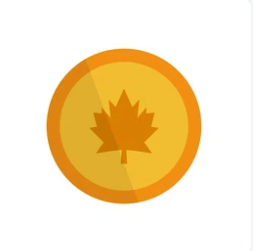This is nothing new and has been going on for decades. People that live in/near border towns often just zip past the border. The animal shelter in one of these towns told us they get all their animals treated in the US. Everyone I talked to in that town has said similar things about buying groceries in the US instead.
I imagine it is just becoming more common with the insane inflation, shrinkflation, etc.
"The dollar is awful. But … I am still saving.
This goes to show you that we are likely paying 40% more on food than we should be.
I don’t want locked-in prices, like that’s some good thing. We are being robbed blind with these inflated prices!
The article indicates that most foods are the same price with the exception of the supply managed foods (dairy, poultry), which obviously are going to cost more. We have always known we pay a hefty premium for those particular products. That’s literally the reason for supply management.
which obviously are going to cost more.
I don’t understand why those would cost 40%+ more. We produce these products here, and they are subsidized, so what exactly accounts for such a disproportionate consumer cost?
They are not subsidized, at least not in the traditional sense of the word. They are supply managed. That means the supply of product is artificially constrained. Think of it like a “shortage”, except created on purpose by the government.
They are not subsidized, at least not in the traditional sense of the word.
This sounds like pretty traditional subsidies.
And these same products are not supply managed in other countries? If not, how come? If so, why are Canadian consumers paying a disproportionately high amount for them?
This sounds like pretty traditional subsidies.
Fair enough. On the other hand, you could say that is compensation for the government not upholding their end of the supply management deal, rather than being a traditional subsidy.
And these same products are not supply managed in other countries?
Not anymore. The UK, Australia, and New Zealand used to have similar systems, but they’ve been long since abandoned.
If not, how come?
It is likely a four year university degree to delve into that complex topic, but I guess the short version is that most countries didn’t go down that road in the first place, and the few that did gave into the pressure to abandon it.
Canada has felt the same pressure, and through the 80s and 90s it seemed like we were close to going the same way, but that tide has turned. There is no political will to go that way now. If you recall, Maxime Bernier’s political career was destroyed because he suggested that supply management should come to an end.
As you can see in your link, the government is on the hook to pay farmers when supply management is encroached upon. If supply management is to be abandoned entirely, Canada has to buy back the quota in full. I suspect we are afraid to go down that road because we don’t think we can afford it.
It really sounds like we (Canada) needs to revisit how this is done. Sounds like a terrible system, and consumers are losing big time.
Some have been saying that for 50 years. But where is the will going to come from? Canadians seem generally in favour of the system. They think it protects them from that ‘horrible American milk’. And nobody realizes that poultry is supply managed because dairy gets all the attention.
bread, fruit and vegetables are about the same price as in Canada, but milk, cheese, butter and meat are much cheaper. […] Dustin says she saves about $300 a month
How much milk, cheese, butter and meat are you buying each month that your savings is $300?


